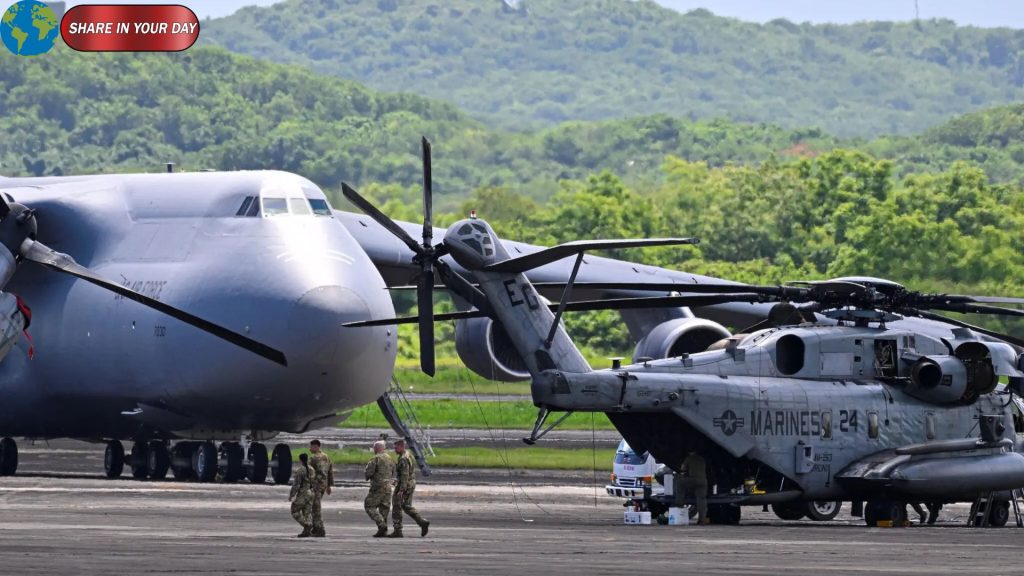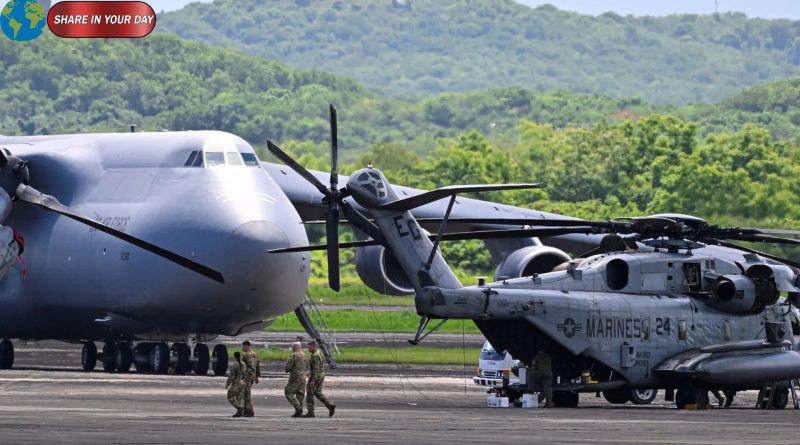Ecuador Releases Survivor of U.S. Strike on Suspected Drug‑Smuggling Vessel
Ecuador has released an Ecuadorian national who survived a recent U.S. military strike on a submersible vessel in the Caribbean, after prosecutors concluded there was no evidence linking him to any crime in the country.
The man, identified by Ecuadorian authorities as Andrés Fernando Tufiño, was repatriated from U.S. custody and underwent medical checks on arrival in Ecuador last weekend. Officials say the country’s Prosecutor General’s Office found “no evidence or indication” that any laws had been violated by Tufiño within Ecuadorian territory.
What happened
The incident occurred when U.S. military forces struck and destroyed a semi‑submersible vessel in the Caribbean Sea, near the Venezuelan coast. The U.S. government, led by Donald J. Trump, claimed intelligence had confirmed the vessel was carrying “mostly fentanyl and other illegal narcotics.”
Of the four people aboard, two were killed in the strike; two survived, including one Ecuadorian (Tufiño) and one Colombian national. The survivors were repatriated to their home countries for legal processing.
Ecuador’s decision
Upon arrival in Ecuador, authorities evaluated Tufiño’s health and reviewed the evidence presented by anti‑narcotics units. They concluded that no crime had been formally reported in Ecuador that would warrant detention. “No pending cases,” the Attorney General’s Office noted.
Ecuador’s President Daniel Noboa affirmed his country’s commitment to combating illicit drug trafficking, while stressing that any actions must respect national and international legal norms.
Regional & legal implications
The strike is part of a broader pattern: since September, U.S. forces have conducted multiple operations against suspected drug‑trafficking vessels in the southern Caribbean. At least 30 people are reported dead in such strikes so far.
Wikipedia
Legal experts and regional governments have raised concerns over the U.S. framing of these operations as part of an “armed conflict” against drug cartels — a justification that mirrors post‑9/11 war‑time reasoning and may bypass standard legal safeguards.
Diplomatic tensions are also mounting. For example, Ecuador remains officially cooperative with the U.S. on drug‑trafficking issues, but its review and release of Tufiño underscore the complexities of sovereignty, evidence‑standards and extradition. Meanwhile, Colombia has taken a firmer stance: its survivor is reportedly hospitalized and faces prosecution. Colombia has recalled its ambassador to the U.S., citing irritation over the strikes.
Investigation of the vessel: The U.S. claims the submersible was loaded with fentanyl and other narcotics. Yet experts ask: what proof is there that the drugs originated or were handled in the Andes region? Many say most fentanyl enters the U.S. through Mexico, calling into question parts of the stated narrative.
Times Union
Regional cooperation vs sovereignty: Latin American nations face pressure to cooperate with U.S. anti‑narcotics efforts. At the same time, they must navigate internal legal systems, human‑rights obligations and national sovereignty. Ecuador’s decision illustrates how local law can limit external operations.
Legal classification of the strikes: If the U.S. treats drug‑trafficking as an “armed conflict”, it may affect how survivors and detainees are processed, and potentially bypass civilian legal protections. The release of the Ecuadorian survivor may prompt re‑examination of how evidence is shared, how prosecutions are handled, and how transparent the U.S. operations are.
Public and political reaction: In Ecuador, this case may fuel debate over the role of U.S. military operations in the region, the transparency of drug‑trafficking claims, and accountability for strikes resulting in fatalities. The U.S. foreign‑policy posture may also face increased scrutiny from Congress and international bodies.
Conclusion
Ecuador’s choice to release the survivor of a U.S. military strike on a suspected drug‑smuggling vessel underscores the complexity of the war‑on‑drugs model when military action intersects with civilian legal systems, national sovereignty and international cooperation. While the U.S. maintains that the strike was a necessary move against narcotics traffickers, Ecuador’s judicial review found no evidence to detain its national — a reminder of how legal standards and diplomatic expectations can diverge.





